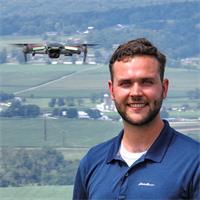.png?sfvrsn=188a2abf_0)
Planning with Intelligence: Ethical AI Applications in Modern Solid Waste Management
November 13, 2025 - | Room C161-C162
Speakers
-
Christopher Toevs
Director of Engineering
Chester County Solid Waste Authority
As artificial intelligence continues to advance, solid waste planning and management are shifting toward a more data-informed approach. This session looks at how AI tools, such as machine learning and generative models, are being thoughtfully integrated into key areas like landfill gas tuning, leachate monitoring, airspace forecasting, and permit planning. Drawing from real-world examples, the session will highlight how AI is currently being used to support transfer station operations, construction estimating, predictive maintenance, and the modeling of solid waste system behavior. Attendees will also gain insight into the emerging ethical considerations that accompany these technologies, including algorithmic bias, data quality, cybersecurity concerns, and the importance of maintaining human oversight in public-serving infrastructure.
The AI regulatory landscape has rapidly evolved, with national and international guidance emphasizing responsible innovation, transparency, and risk management. These shifts are influencing how public agencies, consultants, and solid waste operations adopt AI-based tools, particularly those affecting environmental compliance, safety, and long-term planning.
Attendees will leave with an industry-specific AI Readiness Checklist as a framework for evaluating the appropriateness of AI in planning and management workflows, and a clearer understanding of how to balance innovation with ethical responsibility in solid waste system management. Generative AI will be used in the development of this presentation to support slide organization and conceptual visualization of AI-assisted solid waste models.
About the Speaker

Christopher Toevs
Director of Engineering | Chester County Solid Waste Authority
Christopher Toevs, PE, MEng, is the Director of Engineering at the Chester County Solid Waste Authority and a licensed Professional Engineer specializing in solid waste infrastructure, DEP permitting, and landfill development. He oversees multi-million-dollar capital projects from design through construction, ensuring regulatory compliance, operational efficiency, and environmental stewardship. As a certified drone pilot and data-driven engineer, Christopher integrates aerial imagery, GPS technology, and Ai analytics to enhance project oversight and decision-making. His work focuses on developing sustainable infrastructure that balances technical precision with long-term public benefit. He holds both a Master of Engineering in Environmental Engineering and a Bachelor’s in Biological Engineering from Penn State University, where he is currently pursuing a Doctor of Engineering degree. Christopher’s goal is to advance leadership practices that strengthen the future of public waste management and environmental sustainability.






